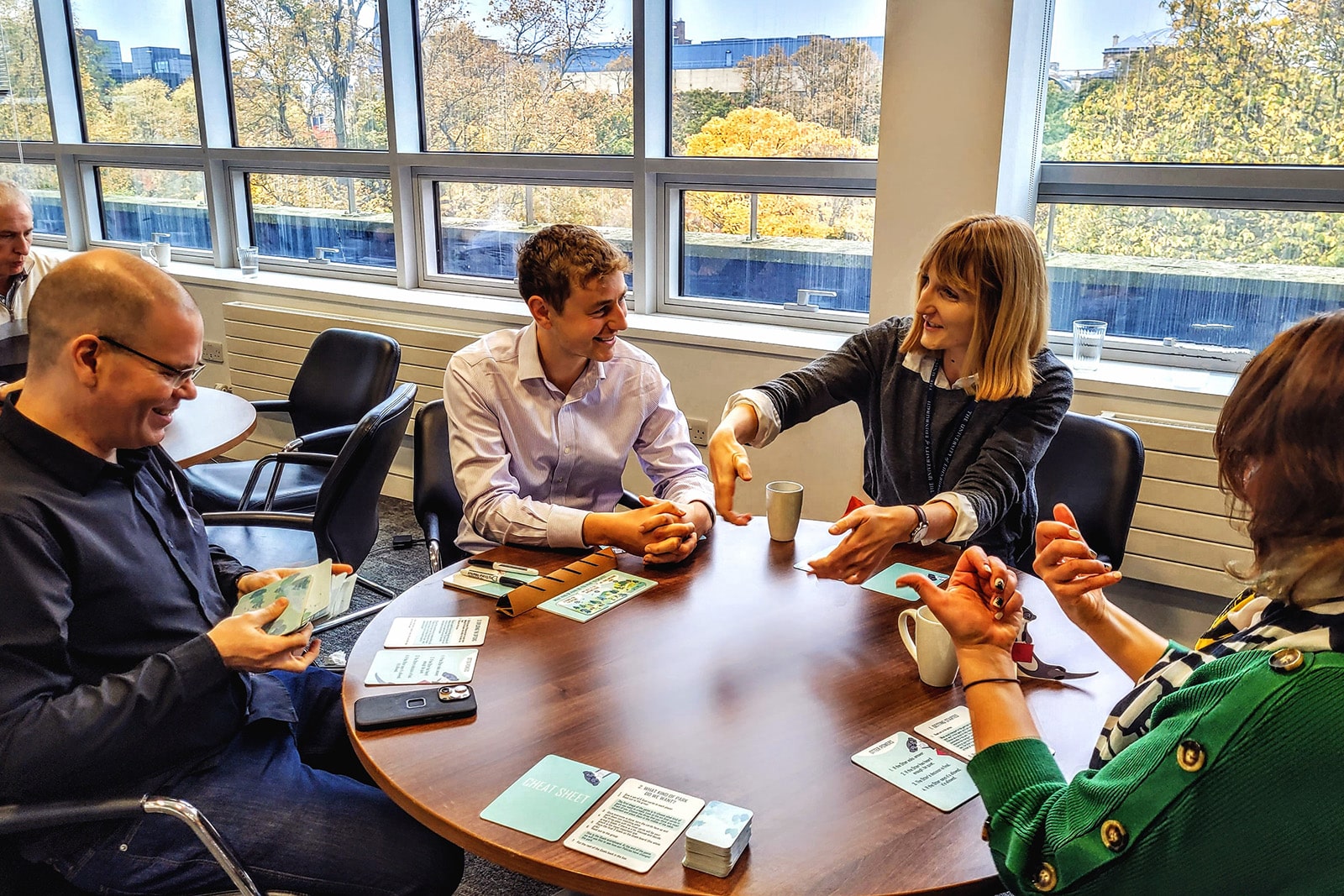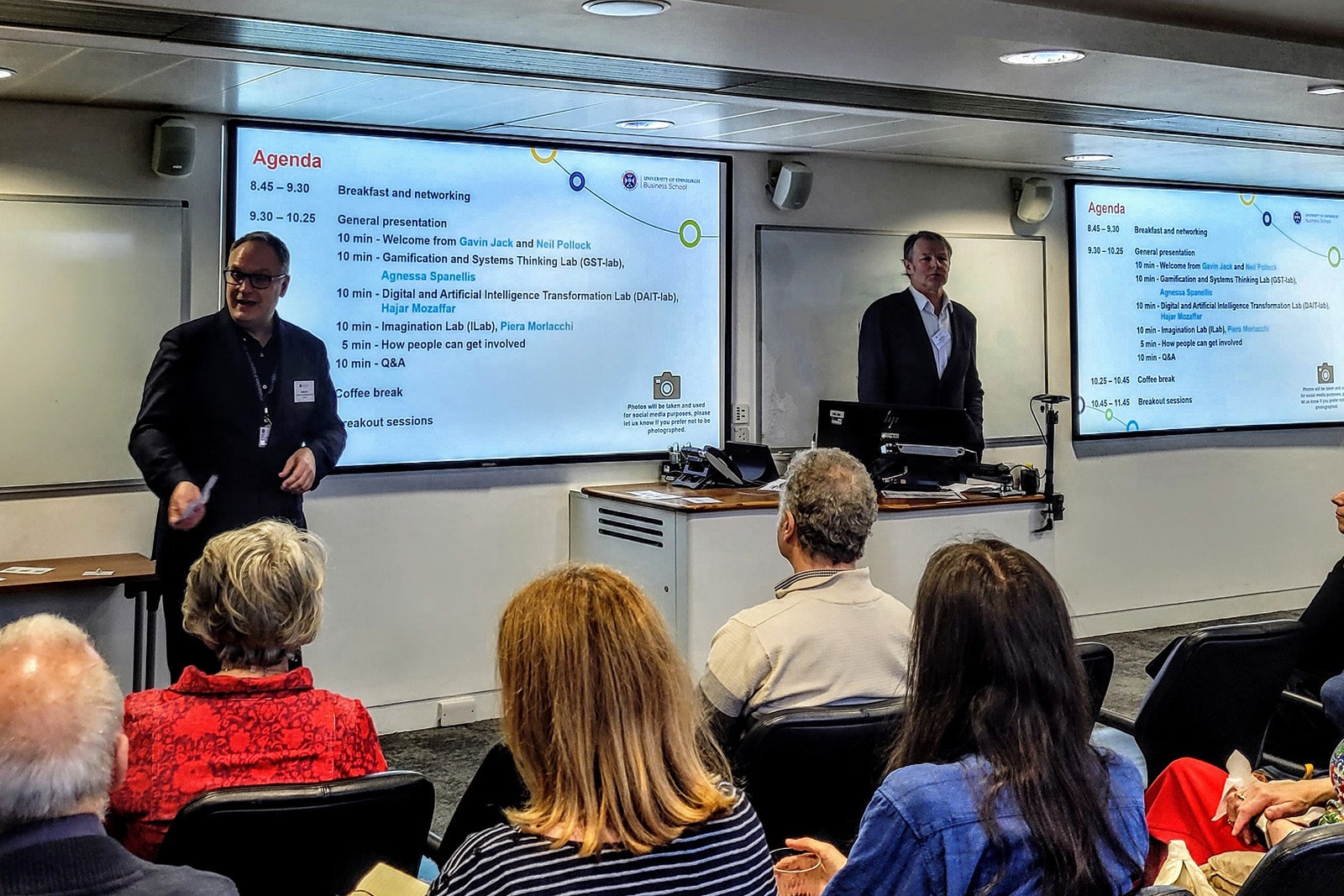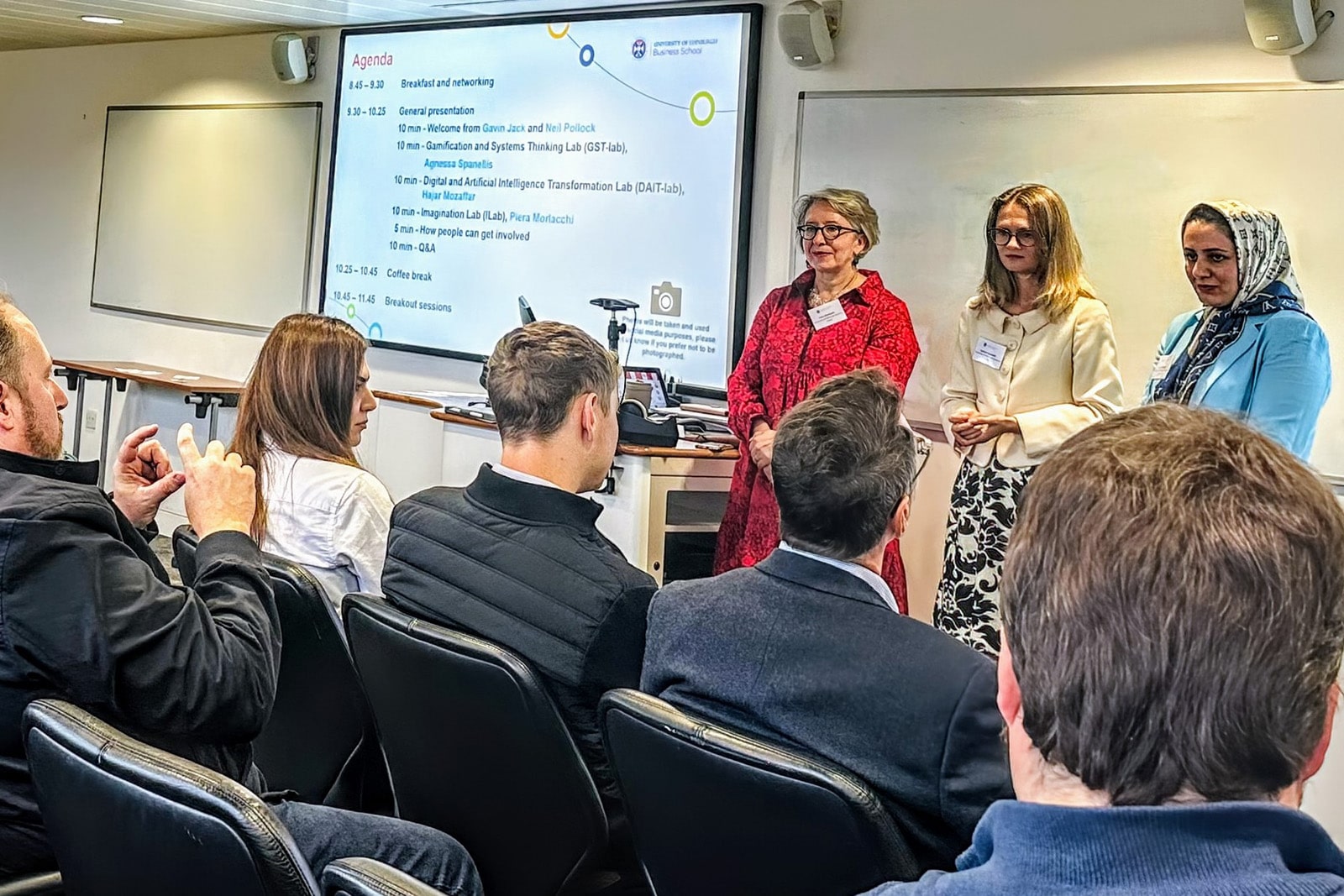
On the 8th October 2024, we officially inaugurated GST Lab, together with two other labs at the University of Edinburgh Business School, the Digital and AI Transformation Lab and the Imagination Lab. Professor Gavin Jack, the school dean, and Professor Neil Pollock, the head of Entrepreneurship and Innovation subject group, opened the event with a welcome word and explained the concept of labs that is new to social sciences.


The event was "sold out" and attended by practitioners from industry and government as well as academics from other schools and universities. The audience was very engaged and asked lots of interesting questions. Here are the key takeaways:
- The concept of labs comes from natural sciences. Research centres typically comprise a large group of academics sharing an interest in a topic and pursuing their own research projects. In contrast, labs emerge around a small group of dynamic individuals with a new idea. They are more flexible and create possibilities for experimentation.
- Games can be a unique approach that helps people to explore temporal dynamics in a system, different sub systems, and different temporalities in these subsystems. The universal game mechanics of turns allows the players to move fast forward and explore consequences of their actions on the system and changes in its behaviour.
- New ideas emerge from interactions between people, and this is what games are good at - facilitating interactions and creating environments for social exchange.
- We don't always know what the impacts of certain decisions on the system might be, and so we cannot always connect actions with consequences. In fact, it is true for most dynamic complex systems. Combining simulations and games can help to explore uncertain futures. The players can change the rules in the game (e.g., properties of agents in an agent-based model) in response to actions of other players, and see how it plays out by running the simulation model and looking at the emergent results.